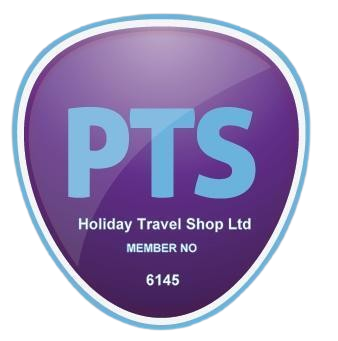Morocco
Morocco, a gateway to Africa, is a country of dazzling diversity. From the bustling souks of Marrakech to the serenity of the Sahara Desert and the peaks of the High Atlas Mountains, Morocco offers an intoxicating experience of colors, smells, tastes, and sounds. With its rich history, vibrant culture, and stunning landscapes, Morocco invites travelers to explore its ancient cities, enjoy its exquisite beaches, and savor its delicious cuisine. Here, tradition and modernity fuse to create a unique and captivating adventure.
Morocco: A Kaleidoscope of Wonder
Before you go
Visa Requirements
For most travelers, including those from the UK and the EU, no visa is required for stays of up to 90 days. Visitors from other countries may need to apply for a visa in advance. It's advisable to check the latest entry requirements from Moroccan consulates or official government websites before traveling.
Language
Arabic is the official language of Morocco, with Berber also widely spoken across various regions. French serves as a secondary language and is widely used in business, government, and diplomacy. English is increasingly spoken, particularly in major tourist areas.
Best Time to Visit
The best time to visit Morocco is during spring (March to May) and autumn (September to November). These seasons offer the most pleasant weather for exploring the cities and the outdoors, avoiding the intense heat of the summer and the chill of the winter months.
Currency
The Moroccan Dirham (MAD) is the official currency. While credit cards are accepted in hotels, restaurants, and larger shops, cash is still king in local markets and smaller towns. ATMs are widely available in urban areas.
Airports
Major international airports in Morocco include Mohammed V International Airport (CMN) in Casablanca, Marrakech Menara Airport (RAK), and Tangier Ibn Battouta Airport (TNG). These airports offer flights to and from major cities worldwide and are equipped with amenities such as car rental agencies, currency exchange offices, and cafés.
Transport
Morocco's transportation network includes buses, which are a common and inexpensive way to travel between cities, and trains, which are comfortable and connect major cities like Casablanca, Marrakech, and Tangier. For more flexibility, renting a car is a good option, although driving in cities can be chaotic for those not used to the local driving habits.
Latest Offers
Holidays
Hotels
Flights
Four Destinations to visit in the Morocco
Marrakech
Known for its vibrant medina, historic palaces, and bustling souks, Marrakech is a feast for the senses. Don't miss the Jardin Majorelle, the Koutoubia Mosque, and the lively Jemaa el-Fnaa square.
Fez
As the cultural and spiritual heart of Morocco, Fez boasts an impressive medina, home to ancient mosques, madrasas, and the famous Chouara Tannery. The old city feels like stepping back in time.
Chefchaouen
Nestled in the Rif Mountains, Chefchaouen is famous for its blue-painted houses. This charming town offers peaceful streets, local crafts, and beautiful views, making it a photographer’s paradise.
Essaouira
This coastal city is known for its historic medina, windswept beaches, and vibrant arts scene. The relaxed atmosphere is a stark contrast to the hustle of the bigger cities.
Culture and Etiquette
Dress Code
Morocco is a Muslim country, and conservative dress is advisable, especially in rural areas and when visiting religious sites. Women should consider covering shoulders and knees, and men should avoid wearing sleeveless tops.
Behaviour
Moroccans are known for their hospitality but also value respect and courtesy. Polite greetings are appreciated, and a little Arabic goes a long way. Be mindful of local customs, especially during Ramadan when eating and drinking in public during daylight hours should be avoided by non-Muslims.
Food and Dining
Moroccan cuisine is rich and varied, featuring spices like saffron, cumin, and coriander. Must-try dishes include tagine, couscous, pastilla, and mint tea. Morocco also produces a range of wines, which are worth tasting.
Safety
Morocco is generally safe for tourists, but petty crime such as pickpocketing can occur in busy areas. Always be cautious with personal belongings and avoid isolated areas at night.
Tips for Travellers
- Bargain respectfully in markets, as it's a part of the shopping culture.
- Stay hydrated, especially when traveling to the desert or during hot weather.
- Consider a guided tour for a more in-depth exploration of cultural sites.
- Respect the local culture and traditions to enhance your experience and interaction with locals.
Stay In Touch
Don’t miss out. Sign up to hear about exciting holiday offers and experiences.
Contact Us
We will get back to you as soon as possible.
Please try again later.
Contact Us
Send Us a message
Travel with peace of mind, confident that your holiday is under protection.

Company
We are proud to be a trusted Member of Protected Trust Services, an esteemed organization dedicated to providing secure and reliable solutions for the safeguarding of client funds and ensuring peace of mind for all parties involved. Through our affiliation with Protected Trust Services, we uphold the highest standards of professionalism, transparency, and accountability in all our business practices, reaffirming our commitment to delivering exceptional service and building long-lasting relationships with our valued customers.
Head Office: 17 Birley Street, Blackpool, FY1 1EG
Follow Us :
All Rights Reserved | Holiday Travel Shop
